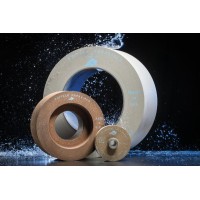
Buffalo Abrasives, Inc.
Buffalo Abrasives, Inc. is a manufacturer of high performance and specialty made abrasive grinding wheels. We offer a complete line of resin, rubber, shellac and vitrified bonds with an extensive range of grain types and grit sizes. Our application engineers work with your team to provide non-catalog, highly engineered custom grinding wheels to ensure optimized performance for your grinding applications. We offer no risk product trials to evaluate our product with your application needs.






